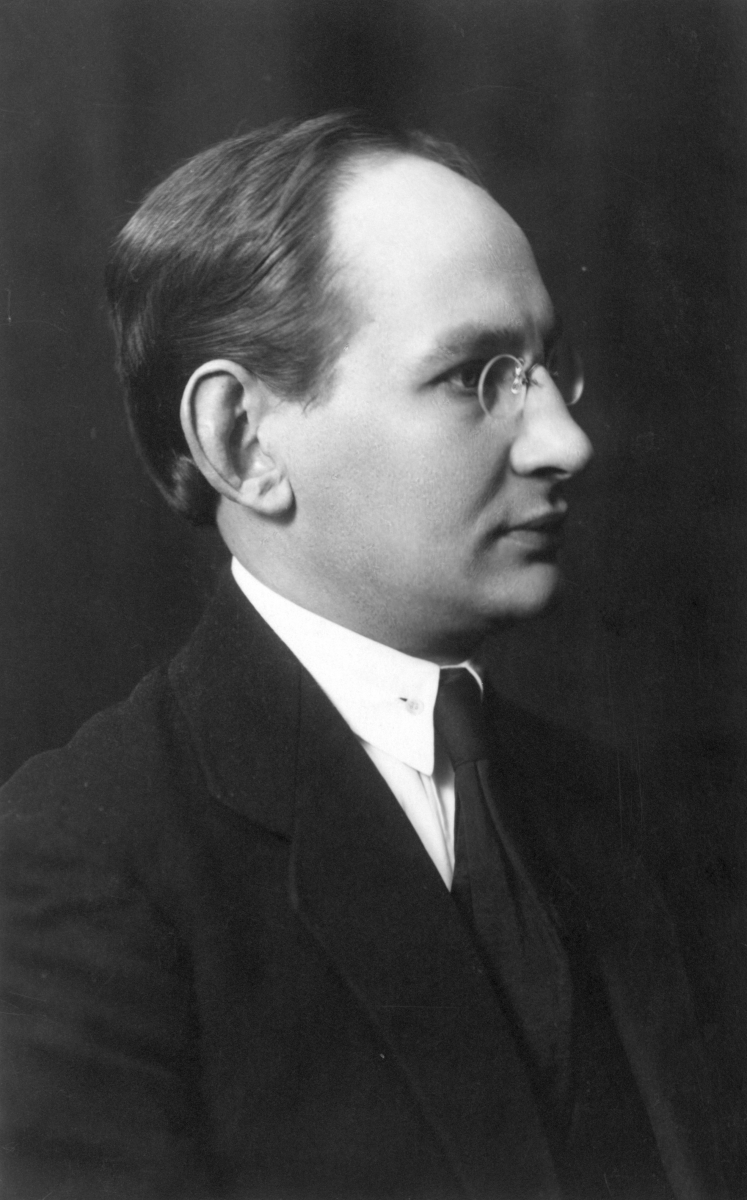
August Alle
August Alle (31. VIII 1890 – 8. VII 1952) was a poet and a journalist. He was born in Viljandi, where he began his multifarious education at a local orthodox school and continued in different establishments in Estonia, Poland (Lithuania) and Russia. He received a solid training in the humanities at a Catholic school in Vilnius, graduated from the Oryol Men’s Gymnasium as an extern in 1915 and studied medicine at Saratov University from 1915–1918. In 1918 he returned to Estonia, where he studied – with prolonged breaks – at Tartu University until he graduated from the Law Department in 1937. Early on, he had taken up a variety of jobs; from 1918 he worked in Tartu and Tallinn as a journalist, a lecturer, a civil servant, and a lawyer – all the while practising as a professional writer. He participated actively in the cultural life of the Estonian Republic, as a member of the board of the Estonian Writers’ Union, the editorial board of literary magazines, Pallas Art Society, etc. After the occupation of Estonia in 1940, Alle went along with the Soviet authorities, working in the Ministry of Education and other national institutions connected to culture. During the German occupation, he was evacuated to the Soviet Union. From 1946 he was editor of the literary magazine Looming until his death. Alle died in Tallinn.
Alle’s development as a poet was primarily shaped by his studies in Vilnius: a classical training and acquaintance with the most recent literature, including the works of the Russian symbolists and the Polish romanticists. From 1911 his poems started to appear in the press as well as in the publications of the Estonian literary groups Noor-Eesti and Siuru. His debut collection Üksinduse saartele (‘To the Islands of Solitude’) was published in 1918. Here, the poet expresses his personal sentiments, but because of the overwhelming mythological subject matter and the use of classical forms of poetry, the poems come across as rather artificial. Nevertheless, this first collection contains Alle’s best known poem, Eesti pastoraal (‘Estonian Pastoral’), which has been included in school textbooks for decades; it is a surprisingly simple and evocative picture of the tough workaday life of a child on an Estonian farm.
Alle made his name as poet with his second collection, the Latin-titled Carmina barbata (1921), which represents a phenomenon of Estonian poetry of that time known as “songs of the time” (“ajalaulud”). It engages with important topical events and acute social problems. Songs of the time were generally fairly similar in style, with their wordy forebodings couched in expressionist rhetoric, but in this work Alle managed to liberate himself from the earlier fictitousness and achieve originality. The rhythm and structure of his poems became freer; they come across as spontaneous, even unpolished, yet the imagery is striking in its rich folksy language, humour and irony. More harshly than most of his fellow poets, Alle attacks the money-grubbing corrupt and the philistine parvenus, expressing his repudiation of life in the dull provincial environment. The theme of the poet’s repudiation and his inability to accommodate to a life that was considered normal continues in more personal vein in his next collection, Ummiklained (‘Cross Swell’, 1930), and also to some extent in a poem published in the interim period, Laul kleidist helesinisest ja roosast seelikust (‘Song of a Blue Dress and a Pink Skirt’, 1925). Alle once again turns a critical eye on social and political warning signs in the collection Karmid rütmid (‘Tough Rhythms’), which was published in 1934.
Alle employed his strong sense of humour and satire in another genre: the epigram. Such satirical, and usually topical, short poems are to some extent a feature of all his poetry collections. His journalistic prose and his literary and art reviews are also marked by his witty satire, which sometimes extends to the absurd and the grotesque, especially in his collection of feuilletons Lilla elevant (‘The Lilac Elephant’, 1923). Alle has also translated fiction, principally Polish authors.
E. S. (Translated by M. M.-K.)
Books in Estonian
Poems
Üksinduse saartele. Tartu: Odamees, 1918, 80 lk. [2. trükk: Tartu: Noor-Eesti, 1921.]
Carmina barbata. Tartu: Odamees, 1921, 94 lk.
Laul kleidist helesinisest ja roosast seelikust. Tartu: Noor-Eesti, 1925, 37 lk. [2. trükk: Tallinn: Eesti Raamat, 1981.]
Ummiklained. Tartu: Eesti Kirjanikkude Liit, 1930, 60 lk.
Karmid rütmid. Tartu: Eesti Kirjanikkude Liit, 1934, 78 lk.
Epigramme. Leningrad: 1944, 7 lk.
Valitud tööd. Valik luulet ja publitsistikat. Koostanud ja eessõna: Ralf Parve. Tallinn: Eesti Riiklik Kirjastus, 1954, 352 lk.
August Alle. Koostanud Ralf Parve. Tallinn: Eesti Riiklik Kirjastus, 1964, 128 lk. [Sari ‘Väike luuleraamat’.]
Pill tuleb pika ilu järele. Koostanud Endel Sõgel. Tallinn: Eesti Raamat, 1970, 29 lk.
Non-fiction
Lilla elevant. Följetoonid ja kriitilised groteskid. Tartu: Varrak, 1923, 124 lk.
Valitud tööd. Valik luulet ja publitsistikat. Koostanud ja eessõna: Ralf Parve. Tallinn: Eesti Riiklik Kirjastus, 1954, 352 lk.



